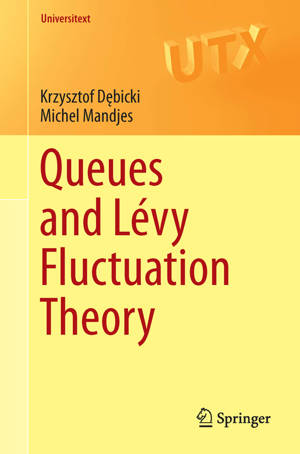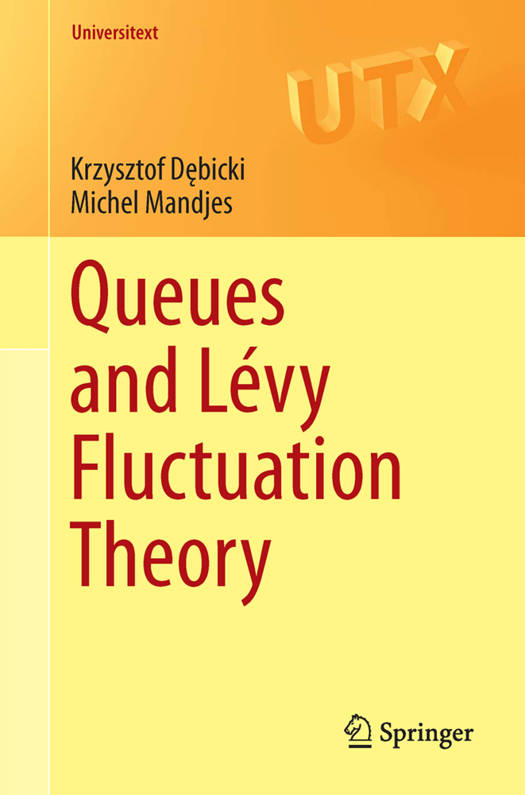
- Retrait gratuit dans votre magasin Club
- 7.000.000 titres dans notre catalogue
- Payer en toute sécurité
- Toujours un magasin près de chez vous
- Retrait gratuit dans votre magasin Club
- 7.000.0000 titres dans notre catalogue
- Payer en toute sécurité
- Toujours un magasin près de chez vous
Description
The book provides an extensive introduction to queueing models driven by Lévy-processes as well as a systematic account of the literature on Lévy-driven queues. The objective is to make the reader familiar with the wide set of probabilistic techniques that have been developed over the past decades, including transform-based techniques, martingales, rate-conservation arguments, change-of-measure, importance sampling, and large deviations. On the application side, it demonstrates how Lévy traffic models arise when modelling current queueing-type systems (as communication networks) and includes applications to finance.
Queues and Lévy Fluctuation Theory will appeal to postgraduate students and researchers in mathematics, computer science, and electrical engineering. Basic prerequisites are probability theory and stochastic processes.
Spécifications
Parties prenantes
- Auteur(s) :
- Editeur:
Contenu
- Nombre de pages :
- 255
- Langue:
- Anglais
- Collection :
Caractéristiques
- EAN:
- 9783319206929
- Date de parution :
- 14-08-15
- Format:
- Livre broché
- Format numérique:
- Trade paperback (VS)
- Dimensions :
- 156 mm x 234 mm
- Poids :
- 381 g

Les avis
Nous publions uniquement les avis qui respectent les conditions requises. Consultez nos conditions pour les avis.






